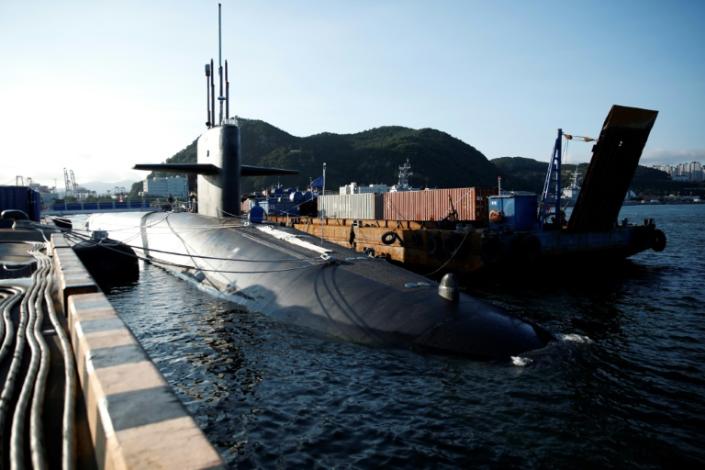
Seoul told North Korea on Friday that using its nuclear weapons would mean the “end” of Kim Jong Un’s regime, after Pyongyang threatened nuclear retaliation over growing US military deployments on the peninsula.
Relations between the two Koreas are at one of their lowest levels, with the North stepping up weapons testing as Seoul and Washington boost military cooperation.
Pyongyang’s defense minister warned on Thursday that this week’s visit by a US nuclear-capable submarine to Busan – the first since 1981 – could hit the legal threshold for the North to use its nuclear weapons.
North Korea passed a sweeping nuclear law last year, setting out a series of scenarios – some vague – in which it could use its nuclear weapons, including preemptive nuclear strikes if threatened.
As Seoul and Washington have “clarified” before, “any nuclear attack against the alliance will face an immediate, overwhelming and decisive response,” the Seoul Defense Ministry said in a statement on Friday.
If that happened, “the North Korean regime will meet its end”, he added.
The U.S. submarine’s port visit is a “legitimate defensive response” to Pyongyang’s continuing nuclear threats, he said.
The visit was agreed upon during South Korean President Yoon Suk Yeol’s trip to Washington in April, when he and US President Joe Biden issued an equally stark warning to Pyongyang about the terminal consequences of using nuclear weapons.
“A nuclear attack by North Korea on the United States or its allies … will bring about the end of any regime that takes such a step,” Biden told reporters at the time.
Announcing his new nuclear law last year, Kim Jong Un said the country’s status as a nuclear power was now “irreversible”, eliminating the possibility of denuclearization talks.
The nuclear law is ambiguous and says Pyongyang can use its nuclear weapons if “an attack by nuclear weapons or other weapons of mass destruction…is deemed to be near.”
Analysts said this could be used to justify the North’s possible nuclear use, even in the face of conventional attacks.
“North Korea is the only entity to have passed the Nuclear Forces Policy Act, which includes illegal preemptive strikes,” Seoul’s defense ministry said Friday.
Pyongyang is also “repeating real pre-emptive strike drills and nuclear strike threats against” the Seoul-Washington alliance, he added.
– Legal justification –
In its now-defunct Nuclear Policy Act of 2013, the North only said its nuclear weapons could be used to “repel an invasion or attack by a hostile nuclear state and to carry out retaliatory strikes”.
But the newly passed law now lists five scenarios in which the North claims it can justify the use of nuclear weapons.
Besides an attack on the leadership of the North or the nuclear command and control system, the scenarios include “an unavoidable situation in which it is forced to correspond to a catastrophic crisis to the existence of the state”, and “the need for (an) operation to prevent the expansion and prolongation of a war”.
The latest developments show that Pyongyang “intends to accumulate justifications for its nuclear response” under its revised doctrine, Yang Moo-jin, president of Seoul’s University of North Korean Studies, told AFP.
The North uses “US strategic nuclear assets deployed on the Korean Peninsula” to explain their behavior, he said.
Washington and Seoul held their first meeting of the Nuclear Advisory Group in the South Korean capital on Tuesday to improve their joint response to any nuclear attack from the North.
South Korea’s Friday statement comes as a US soldier, Travis King, is believed to be detained by North Korea after crossing the border while on a sightseeing trip to the DMZ Common Security Area on Tuesday.
Pyongyang has long held Americans and used them as bargaining chips in bilateral relations. He has not yet posted a comment on King.
cdl/ceb/smw

